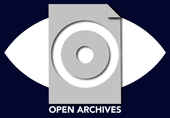Do not make a fool of yourself: towards a reflection of teaching practices through film
DOI:
https://doi.org/10.15332/erdi.v2i1.119Keywords:
self-analysis, to educate, meaningful learning, learning through projects, autonomous learningAbstract
Since some time ago, animated movies have reached a special place in cinema thanks to superb productions which effectively condense several ingredients that make each lm an enjoyable experience not only for children, but also for the whole family. The merit of the animated films new producers lies in a planning content that allows these filmic expressions to be more than a product designed to entertain; that’s the reason why nowadays they are focused on presenting stories with a surface structure attractive to infants that, simultaneously, propose to other audiences greater plots complexity in order to invite the viewer to find, after a deep audiovisual material analysis, suggestive insights about a wide range of social, economic , political, cultural and even academic matters. This study analyses how this new trend of animation on the big screen has a place in the field of education due to this document will point out how Kung Fu Panda movie by directors Stevenson and Osborne (2001) poses a number of strong criticisms of traditional practices in the school, meanwhile, between the lines, some suggestions are made about what teachers should take into account in their daily practice of this occupation.Downloads
References
Ausubel, D. P. (1976): Psicología Educativa. Un punto de vista cognoscitivo. Primera edición. Trillas, México.
Ausubel, D. P. & Novak, et. al. (1983) Psicología educativa. Un punto de vista cognoscitivo. México: Trías
Cela, J y Palou, J. (2004). Carta a los nuevos maestros. Barcelona: Paidós.
Cobeña Fernández, J.A. Inteligencia rápida, inteligencia tranquila. Disponible en: http://www.joseantoniocobena.com/?author=1[Consultado 20 de julio de 2012]
Crispín, Bernardo, M. L. (comp) Aprendizaje autónomo: orientaciones para la docencia. Universidad Iberoamericana, AC. Primera edición electrónica: 2011. México D.F. Disponible en: http://www.uia.mx/web/les/publicaciones/aprendizaje-autonomo.pdf [Consultado, mayo 16 de 2012]
De Lózar Cuevas, E. El docente Ideal. Publicado en enero 10 de 2011. Disponible en: http://laplumacritica.blogspot.com/2011/01/el-docente-ideal.html [Consultado. Junio 18 de 2012]
Dickinson et al., 1998; Katz & Chard, 1989; Martin & Baker, 2000; Thomas, 1998. NorthWest Regional Educational Laboratory. Aprendizaje por proyectos. Publicado en EDUTEKA. Marzo 11 de 2006 Disponible en: http://www.eduteka.org/AprendizajePorProyectos.php [Consultado, junio 18 de 2012]
Gardner, Howard (1987), Estructuras de la mente. La teoría de las múltiples inteligencias, México: Fondo de Cultura Económica.
Freinet, C. (1996), La escuela moderna francesa – Una pedagogía moderna de sentido común – Las invariantes pedagógicas. Madrid. Ediciones Morata.
GALLEGOS NAVA, R. (2005) Educación y Espiritualidad. La educación como práctica espiritual. Ed. Fundación Internacional para la Educación Holista. Guadalajara, México.
Meireu, P. (2006) Carta a un joven profesor. Barcelona: Grao.
Montessori M. (1994) Formación del hombre. México. Diana.
Ospina, W. (2012). La lámpara maravillosa. Cuatro ensayos sobre la educación y un elogio de la lectura. Mondadori: Colombia.
Organización de las Naciones Unidas para la educación, la ciencia y la cultura.(2005) Objetivos de desarrollo del milenio: una mirada desde América Latina y el Caribe. Disponible en: http://www.unesco.org/es/education-for-sustainable-development/strategy/learning-to-be/ [Consultado el día 26 de julio de 2012]
Downloads
Published
How to Cite
Issue
Section
License
Publishing and copyright
The authors of the articles accepted to be published, transfer proprietary rights to Espiral, Journal of Teaching and Research for the partial reproduction of the published work in electronic media (websites, indexes, directories), as long as their purposes are academic but not commercial.








